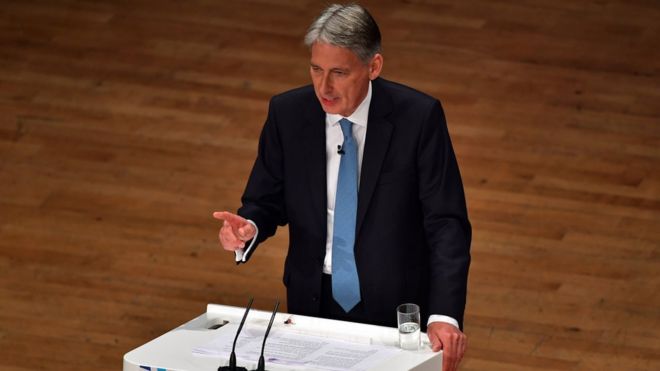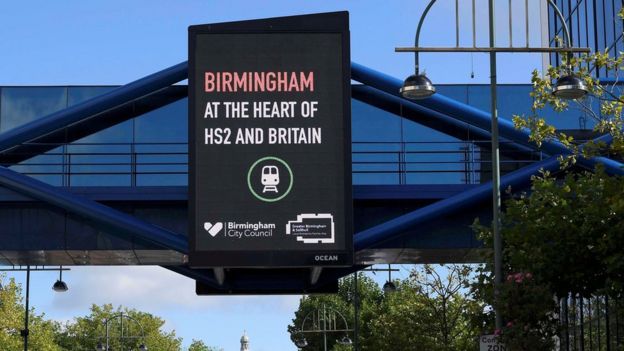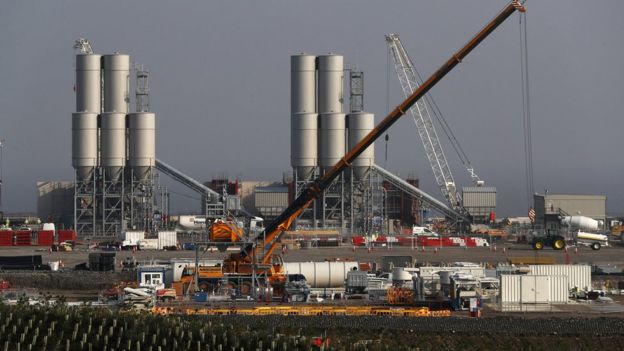
The Conservative government seems to be taking a new tack.
It is already planning to spend lots of money on big projects like HS2, a new Hinkley nuclear power station, and maybe even a new airport runway in south east England.
Now the new Chancellor, Philip Hammond, is in favour of spending more money on houses and transport.
It seems that spending on infrastructure, as part of a plan of economic management, is back in vogue.
So, BBC news asked some experts to ponder the vital question: is this a sure-fire way to boost the economy, or can it be a waste of money?
Professor Michelle Baddeley, UCL
Michelle Baddeley is a professor of economics at University College London.
She points out that money spent on big projects gives an immediate short-term cash boost to the economy, which can last a few years.
But even if the projects seem obviously beneficial, the longer-term effects can be much harder to measure, with many unknowns.
"That's part of the debate about HS2 for instance. How is access to high speed rail going to affect people's productivity at work?" she asks.
"If they are sitting on a train doing nothing then it is not going to be good for their productivity, so the quicker the train journey and the quicker they get to work, the better.
"But if they work on the train that changes the calculations a bit," she adds.
The economic benefits of infrastructure spending can even be hard to spot, let alone measure, even if you are sure they must be there.
So what should a government, with competing demands on its money, do?
"The idea of an infrastructure commission is a good one," says Prof Baddeley.
"You can get people who are as impartial as possible to look carefully at each business case."

Professor Nicholas Crafts, Warwick University
Nick Crafts is a professor of economic history, and he thinks that the results of spending on economic infrastructure have been a mixed bag.
Some projects, like the Channel Tunnel, have been extremely expensive compared with their benefits.
And he says there are obvious question marks about the benefits of HS2, the planned new rail link between London, Birmingham and the north of England.
Short term spending may pump money into the economy and then be re-spent, but Prof Crafts thinks this benefit can be overstated.
So what about improving the economic capacity of the economy, long term?
"It is possible to work out roughly what the right level of public spending is to sustain the growth of the economy and prevent bottlenecks," he says.
"Before the banking crisis the right number was about 2.5% of GDP spent on public capital each year and since then we have been spending about 1.5% of GDP.
"But since the crisis, the economy has not grown very much, so the question that is unresolved is whether there is a "new normal" in which the economy will never grow more than quite slowly - if so, the economy will not need so much public capital," he explains.
Dr Alex Trew, University of St. Andrews
Alex Trew, lecturer in economics, says that government money spent on infrastructure is not always a good thing and can certainly be wasted .
For a good example he suggests looking at China where six-lane interstate motor ways have been built but which are hardly used.
That points to a greater truth. A top-down approach can lead to wrong decisions.
"It is hard for a government to know what to spend its money on when it comes to infrastructure, which is why it gets into such a pickle when it comes to decide," he says.
"It doesn't know how to pick the right areas or best parts of the country to connect up."
Fundamentally, Dr Trew says, it is very complex to work out what the long term impact will be of any big spending decision.
"We still see the impacts today of investments made in the industrial revolution, so the effects can be very long-lasting" he says.
"But there are lots of complex relationships between things, because people's decisions about where to live, and business decisions about where to put factories and offices, change," he adds.

Christian Wolmar, transport writer and campaigner
Christian Wolmar, likes to point to the most recently opened new railway in the UK as a good example of the public good that can come from infrastructure investment.
He is referring to the resurrected Borders railway line which runs south from Edinburgh, through Midlothian, to Galashiels and Tweedbank.
It opened a year ago with passenger numbers already much higher than predicted.
Mr Wolmar says it is a good example of how railways create wider economic wealth.
"For tourism, it has been highly successful in attracting more people," he says.
"The northern bit of the line has clearly led to greater used by commuters so house prices are higher, making houses more desirable and stimulating housing demand.
"It has reduced the amount of traffic on the roads, which helps even those people who don't use it. So it has done everything a railway line is supposed to do," he adds.
Professor Anne Power, London School of Economics
Anne Power, professor of social policy, argues that the bigger the investment project, the larger the delays and thus the more problems that can be created.
As a result, she thinks that investment in smaller scale projects can in fact bring more benefits.
"Programmes such as Labour's Decent Homes investment, or investment in energy saving for existing housing stock, would be much more managed and dispersed," she argues.
"The work can be done at ground level by local companies and so there is more local impact on the local economy. It leads more directly into local jobs.
"Another example is investment in train rolling stock," says the professor.
"More modest investment in existing stock would have a much better economic impact than HS2 for example, the impact of which may not be felt for many years and the costs of which are huge."
No comments:
Post a Comment